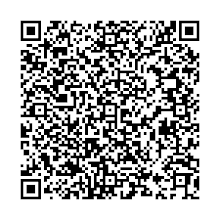Autism Spectrum Disorders (
ASD) experts came together on Saturday, April 10, 2010 at Lesley University in to provide a day of professional development, training and information on
Asperger’s Syndrome (AS) to educators, specialists and parents as a charity benefit for the
Asperger's Association of New England (
AANE), based in
Watertown, MA. This was the fourth event in the speaker series,
Focus on Autism Spectrum Disorders, hosted by the Severe Disabilities Graduate Education program at Lesley University.
AANE is the largest independent organization for AS in the nation, but does not receive any state or federal funding. The event raised over $10,000 for the organization.
The speaker series was developed to bring awareness to the need for increased training for educators and professionals working with individuals with an autism spectrum disorder. Advocacy is an initiative of the Severe Disabilities program, including support for non-profit community organizations, such as
AANE, that in turn support families, professionals and schools, particularly in these challenging economic times. This serves as a model and support to teachers trained in the program, as a way to help them to both identify community agencies who can support their work in the classroom and support families and students out of school time and to recognize the importance of support for these
agencies during their professional careers.
In recognition that the cost of training is sometimes an impediment to teachers, parents and other professionals, professional development events hosted by the Severe Disabilities program are offered at low-cost, a position adopted from
The Center for Special Education at Lesley University.
Participating April 10 conference experts included:
Ellen Korin, M.Ed., author of
Asperger Syndrome: An Owner's Manual, and
Asperger’s Syndrome: An Owner’s Manual II, which recently received a
NAPPA Honors Award from the National Parenting Publications Awards
Dr. Stephen Shore, author of numerous books, including
Beyond the Wall: Personal Experiences with Autism and Asperger Syndrome and the critically acclaimed
Understanding Autism for Dummies
Dr. Karen Levine, author of
Replays: Using Play to Enhance Emotional And Behavioral Development for Children With Autism Spectrum DisordersDr. Ross Greene, author of
The Explosive Child and
Lost at SchoolAll four experts waived all speaking and related fees to support the effort.
Two previous events were held last year in collaboration with
AANE, including two sessions on Individualized Education Programs (
IEP). A May 5, 2009 session included a panel of parents who have served on teams to develop legally mandated Individualized Education Programs (
IEP) for children with
ASD. A June 2, 2009 session, jointly created and presented by Jean Stern, director of Children’s Services for
AANE, and Elizabeth Stringer Keefe, focused on writing a legally compliant, appropriate
IEP for a student with an
ASD.
Dania
Jekel is Executive Director of
AANE, whose mission is to provide quality and individualized information to parents and professionals, through the provision of innovative services such as the first ever conference on Anxiety and
Asperger’s Syndrome, and a new
LifeMAP program, which provides one-to-one coaching to adults with
Asperger’s.
“It is important for us to partner with educational institutions like Lesley University, provider organizations and professionals to strengthen services to those affected by AS,”
Jekel said. “In this fiscal time it is particularly important that we expand our revenue sources, which come from families, foundation grants, conferences and memberships, to serve the increased numbers of children and adults diagnosed with AS.”
AANE is responding to the proposed changes to the Diagnostic and Statistical Manual of Mental Disorders 5
th Edition (
DSM-5), which
proposes to subsume the diagnosis of
Asperger's Disorder into a broader category, Autistic Disorder through continued advocacy and a position paper, available
here. Ms.
Jekel visited the White House last week at President
Obama's request with a group of other experts on
ASD.
The April 10 event was attended by Jean Stern (AANE), who also provided commentary on the proposed changes to the DSM-5; and staffed by volunteers, including Karen
Zimbrich, Associate Director of the Center for Special Education; Christina Chandler, Assistant Director of Academic Advising and Student Services at Lesley University; two alumni of the Severe Disabilities Program, Teresa Robinson and Lexy
Goldberger; and current students Kelly
Atherton, Elizabeth
Donghue, Athena
Fazio, Nina
Alberg and Emily
Lapean.





